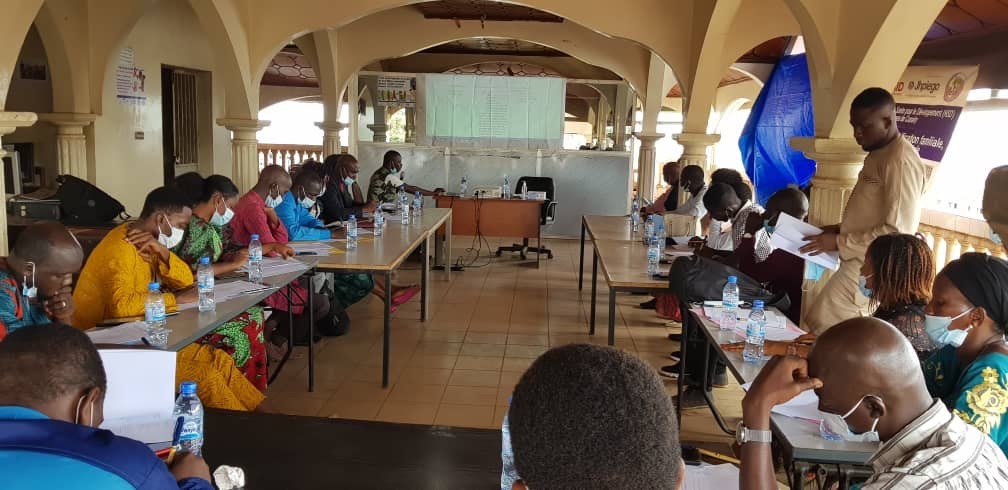Strengthening Community Health Performance in Guinea
Tackling complex issues in community health financing and devolved roles and responsibilities while applying iterative learning to improve implementation of the community health policy

The Challenge
Guinea’s life expectancy is only 59 years, with consistently high maternal, infant, and child mortality (Demographic and Health Survey 2012). The 2014-2016 Ebola epidemic exacerbated the challenges in the health system due to disruptions in the delivery of health services and a loss of confidence in the provision of community health services which continue to have lasting repercussions on health outcomes. In addition, Guinea is currently grappling with ensuring the continuity of essential services due to the COVID-19 pandemic. A lack of human resources, weak health system infrastructure and difficulties related to the storage and management of essential supply chain commodities have further weakened the capacity of the health systems to address population health challenges. Historically, the central government has struggled to provide services at the community level, which has hampered the success of health programs across the country and caused significant inequities in access to health services and disparities in health outcomes, particularly in rural regions.
The Opportunity
In 2018, the government unveiled the National Community Health Policy to address longstanding health system challenges and inequities. Its centerpiece is the recruitment, training, and salaried payment of Community Mobilizers (RECO) and Community Health Workers (ASC). The Directorate of Community Health and Traditional Medicine, within the Ministry of Health (MOH), oversees the implementation of the Policy in collaboration with other technical and financial partners.
While the design and leadership of the Policy are strong, key stakeholders have identified challenges in its implementation and operationalization, and many initiatives have yet to be realized. Systems-level changes are required for health workers to be effective, including:
- Strengthened leadership, management, accountability, and governance
- Improved coordination mechanisms across vertical programs
- Domestic resource mobilization and strategic allocation
- More effective adaptation, operationalization, and sustainability of the Policy
Our Work
The Accelerator supports the government’s efforts to effectively implement the community health policy to ultimately help improve health outcomes and support universal health coverage in Guinea. Co-creation and engagement with country-led government and civil society platforms have generated contextually grounded, sustainable solutions that will improve implementation of the Policy and strengthen leadership and governance to benefit Guinea’s most vulnerable communities.
In close collaboration with the MOH, the Accelerator facilitated a three-part co-creation series on financing, decentralized roles and responsibilities, and learning and implementation research. The program has convened representatives from the MOH, technical and funding partners, and civil society to complete root cause analysis and solution brainstorming. The co-creation benefited from knowledge translation and peer-to-peer learning from other country programs implementing community health programs such as Liberia and Ethiopia in collaboration with Exemplars in Global Health.
The co-creation process yielded a new community health financing plan, new strategies for effective decentralization of community health roles and responsibilities, and a strengthened civil society advocacy platform for community health. The strengthened civil society platform has led to a series of country dialogues with the MOH to articulate funding priorities for a new Global Fund proposal and other opportunities. The Accelerator is also working closely with other technical partners to map domestic resources, which will be crucial to identifying sustainable funding sources for community health.
This activity is an example of increased coordination and collaboration between partner organizations to harmonize work plans and avoid duplication of efforts, which was identified as a key priority during the co-creation process. Co-creation of the learning and research action plan is ongoing. However, initial discussions with the MOH have highlighted that the community health policy lacks a robust learning and implementation research agenda to promote iterative program improvements. Therefore, the co-creation series will lead to the creation of a learning agenda and learning activities to support adaption and decision-making for improved implementation of the community health policy.




